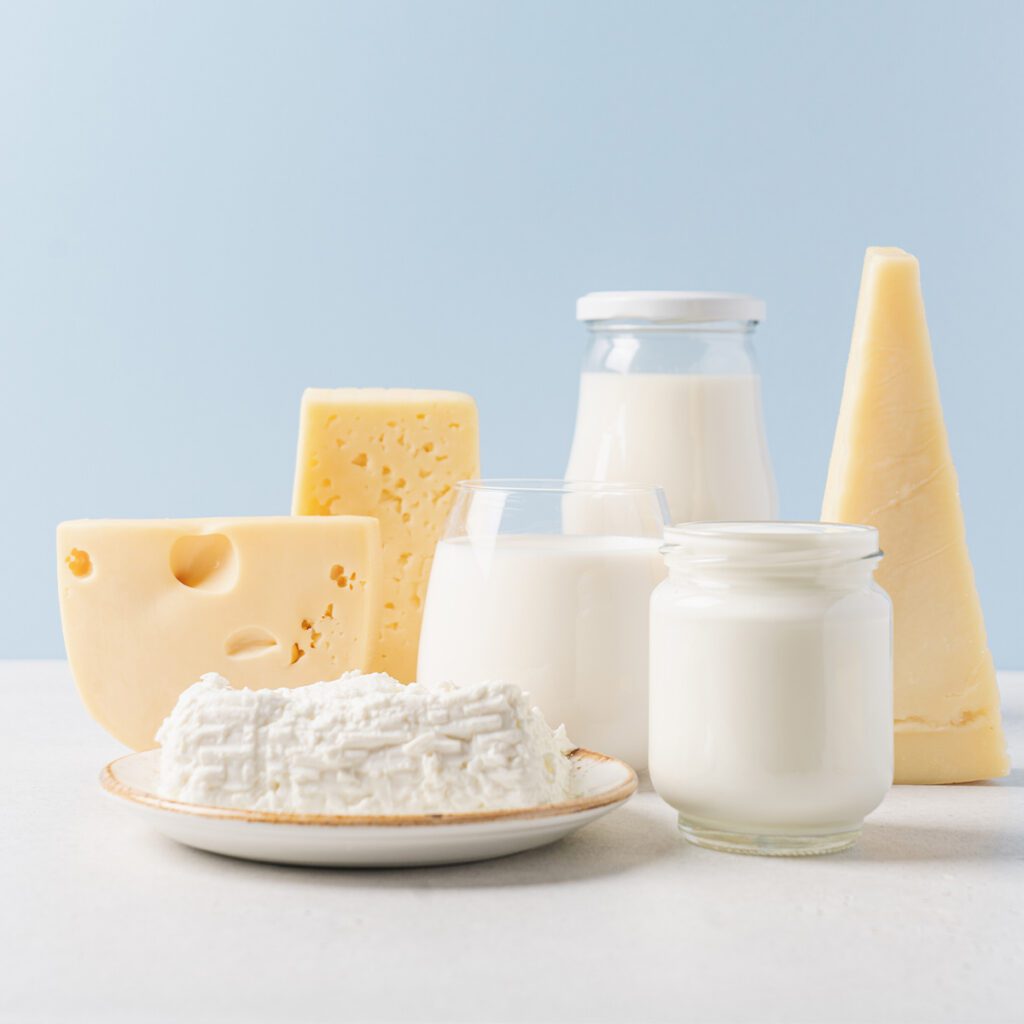It Does a Body Good
Got Milk? We’re all familiar with this popular phrase. Featuring celebrities and athletes adorned with perfect milk mustaches, the dairy industry spends millions each year to promote their product with this clever campaign. But why is milk so important?
A staple in the American diet – milk, cheese and other common dairy products are our primary source of calcium, a vital mineral for people of all ages. With a higher presence in the human body than any other mineral, calcium exists primarily in bones and teeth with trace amounts in the blood, muscles and fluid between cells. Calcium’s primary function is the strengthening of bones and teeth, but it also helps muscles and blood vessels to contract and expand. It secretes hormones and enzymes, and it sends messages through the nervous system. Calcium is vital to our bodies, and it is important that we get enough of it.
Getting enough calcium in our diets from an early age can prevent the bones from weakening, thereby keeping the risk of fractures relatively low. This is particularly important for women, who are at an increased risk for brittle bones and osteoporosis, a condition that makes bones weak and more likely to break.
Adult bone mass peaks in women around age 30, and then there is a gradual loss that increases after menopause. If women keep their calcium intake at a healthy level early on, they can maintain their bone mass much longer.


The calcium in our bones is continually removed and replaced in small increments. The body pulls calcium from the bones; therefore, a person who is calcium deficient will have weaker bones, more prone to breakage. While this process is slow, the damage that comes from osteoporosis can wreak havoc on us as we age. When it comes to keeping bones and teeth strong, adequate calcium consumption is the best preventive measure.
The amount of calcium an individual needs varies according to age. Infants and toddlers need between 200 and 500 milligrams per day. Children and teenagers need between 800 and 1,300 milligrams per day. Adults 50 and under need about 1,000 milligrams per day, and those over 50 need 1,200 milligrams per day.
Contrary to popular belief, adequate calcium consumption doesn’t mean chugging eight glasses of milk a day. At 302 milligrams per cup, milk is a fantastic source of calcium, but there are many other foods that provide this important mineral. Fortified oatmeal, for example, has 350 milligrams of calcium per serving. Other calcium-rich foods include almonds, pistachios, legumes, seeds and leafy greens like kale, escarole, collard greens and bok choy. All dairy products are rich in calcium as are canned fish, tofu, and fortified orange juice. The National Institutes of Health’s website (www.NIH.org) also features some helpful charts about the calcium content in other common foods.
Be careful of foods that can deplete calcium levels or limit absorption. Some foods to consume in moderation include antacids, caffeine, excess alcohol, excess sodium and excess red meat.
The bottom line is that adults should consume between 1,000-1,200 milligrams per day depending on their age. For those who do not eat enough calcium-rich foods to meet the target amount of calcium per day, calcium supplements are a viable alternative.
Just be careful not to add too much calcium with your supplement. The National Institutes of Health recommends individuals add no more than 500-600 milligrams in supplementation at a time. There is no benefit to adding more than the recommended amount, and over consumption can lead to kidney stones. It is best to keep food and supplementation to no more than 1,500 milligrams per day with a well-balanced diet.
The body is filled with calcium already. It’s our job to keep it that way. Enjoying calcium rich foods is all it takes to promote healthy, strong bones and teeth, while even preventing certain types of cancer. Got milk? Or kale? Or sardines? Or fortified oatmeal? Any of these will go a long way to protecting your bones and teeth and improving your health for years to come.

